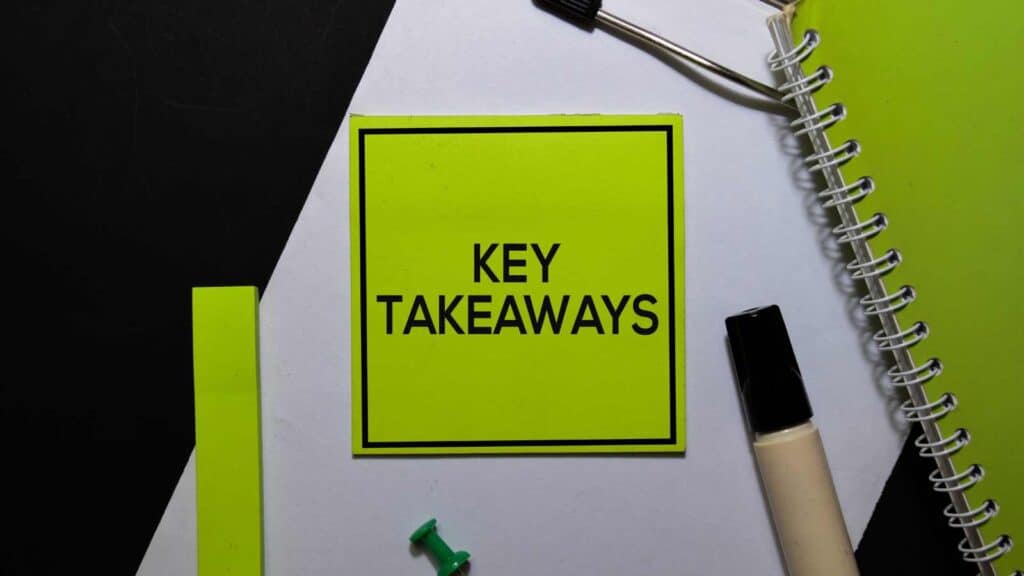11 things a strong woman does when she’s ready to dump you
Ever get the feeling you’re in a relationship with a ghost?
You’re sitting across from her at dinner, but she’s a million miles away. The texts get shorter, the laughs feel forced, and there’s a quiet hum of distance that you just can’t shake. You tell yourself you’re imagining things, but your gut knows better.
Here’s a hard truth backed by data: you’re probably not imagining it. A landmark 2015 study highlighted by Stanford sociologist Michael Rosenfeld found that women initiate 69% of all divorces.
This isn’t a sudden decision made in the heat of an argument. It’s often the final step in a long, calculated process of emotional detachment.
She’s not just being moody; she’s likely making a calculated exit, and her actions are speaking volumes. Here are the 11 research-backed things a strong woman does when she’s getting ready to leave you.
She stops fighting with you

Remember those passionate arguments? The ones where you both fought to be heard? When those stop, it’s a major red flag.
A woman who is emotionally checking out will start to avoid confrontation altogether. It’s not because she’s suddenly become easygoing. It’s because she no longer believes the relationship is worth the energy of a fight.
Her silence is an act of emotional self-preservation. She’s concluded that fighting is pointless, so she shuts down the interaction as a precursor to shutting down the relationship.
The communication becomes an echo chamber

You used to talk for hours about everything and nothing at all. Now, your conversations feel like you’re trying to get through a checkout line. “How was your day?” “Fine.” End of discussion.
This isn’t just a phase. When a woman is on her way out, communication becomes “strained and forced,” and she stops sharing the details of her life.
She’s building an “information firewall.” By cutting off the flow of her true thoughts and feelings, she’s dismantling the emotional bridge between you, making the final break cleaner for her.
She starts using “I” instead of “we”

When talking about “our” future, “our” vacation plans, or “what we should do this weekend,” suddenly morphs into “my” future, “my” trip, and “what I’m going to do,” the alarm bells should be ringing.
Experts consistently point to this linguistic shift as a key sign of emotional checkout. She’s no longer seeing a shared future, so she stops talking about one.
This is a form of what psychologists call “cognitive distancing”—mentally detaching from you and the relationship.
This isn’t a slip of the tongue. It’s her mentally rehearsing a life without you. Each “I” statement reinforces her identity as a separate person, making the final split feel less like a painful amputation and more like a natural next step.
Her phone becomes a fortress

You try to talk to her, but she’s scrolling through Instagram. You reach for her hand, but she’s busy texting. Her phone, work, or hobbies now get the attention you used to.
Dr. Sabrina Romanoff, a clinical psychologist, says a major sign of this “quiet quitting” is when a partner is “suddenly detached and withdrawn,” even when they’re right next to you.
Her phone isn’t just a distraction; it’s often a portal to her exit strategy. It’s where she’s reconnecting with friends, strengthening her support system, and getting the emotional validation she no longer gets from the relationship.
The screen is a physical barrier to intimacy and a tool for building her future. Her digital life has become more rewarding than her life with you.
She’s suddenly building a whole new life

She’s joined a new yoga studio, signed up for a pottery class, is out with her friends every Friday night, and is suddenly gunning for a promotion at work.
While independence is healthy, an abrupt and excessive increase can be a huge red flag. She’s pouring energy into everything and everyone… except you. This is often a sign she’s trying to “establish an identity separate from the relationship”.
This isn’t just about creating distance. It’s about de-risking the breakup.
A strong woman ensures she has a full, stable, and happy life to build on before she leaps. She’s building her own safety net, emotionally, socially, and financially, so that the decision to leave isn’t a terrifying leap into the unknown.
Physical touch feels like a chore

The casual, everyday affection that keeps a relationship alive, such as a hand on your back as you pass in the kitchen, holding hands while watching TV, or a spontaneous hug, has largely vanished.
The loss of non-sexual touch is often more telling than the end of sex. Casual affection is a barometer of emotional closeness. When it disappears, it means her body is rejecting an intimacy her mind has already moved on from.
She is creating a “touch barrier.” This physical boundary is the external proof of the emotional walls she’s already built.
She treats you with polite indifference

She’s not yelling anymore, but she’s not laughing either. She treats you like a distant colleague or a roommate she’s trying to be civil with.
Strangely enough, when a woman is checking out, she might become “unusually kind and considerate” to avoid confrontation or manage her own guilt. The relationship loses its casual comfort, and things can start to feel “too formal”.This politeness is a de-escalation tactic.
By treating you with formal distance, she is psychologically re-categorizing you from “intimate partner” to “acquaintance.” This makes the breakup feel less like a personal betrayal and more like a simple, impersonal parting of ways.
She stops complaining and starts solving

The leaky faucet got fixed, but she didn’t ask for your help. She was stressed about a work project, but she leaned on her friends instead of you.
She has stopped bringing you her problems because she has fired you from the job of “partner.” A core function of a relationship is mutual support, and by taking you out of the loop, she’s making a powerful statement: “I’m better off on my own.”
This often happens after a woman feels her emotional needs have been chronically unmet. She concludes she has to be the “provider of her own needs,” making your role in her life redundant.
Every problem she solves without you is a successful test run for her single life. It’s a confidence-building exercise that proves she doesn’t need you.
Your compliments get a “thank you” and nothing more

You tell her she looks beautiful, and she says a flat “thanks” without looking up from her phone. You do something thoughtful, and it’s met with a brief nod. There’s no reciprocal affection, no warmth, no return on your emotional investment.
She has become a “passive participant” in the relationship. This is a version of the “still-face effect” seen in developmental psychology, where an infant becomes distressed when a parent stops responding emotionally. In adults, it creates a massive relational break.
She is no longer sourcing her self-worth from your validation.
A strong woman preparing to leave has shifted her focus inward or to her external support system. Your opinion, once central to her happiness, is now on the periphery. Her emotional “account” with you is closed.
She starts talking with contempt

The respect is gone, replaced by sarcasm, mockery, eye-rolling, and sneering. Contempt isn’t just criticism; it’s an attack on your character from a place of moral superiority.
The Gottman Institute’s decades of research are crystal clear on this: contempt is the single greatest predictor of divorce. It’s fueled by long-simmering negative thoughts that have curdled into disgust.
This is the final, most toxic horseman of the relationship apocalypse. When a woman uses contempt, she no longer sees you as an equal partner.
In her mind, the relationship is already dead, and she is speaking to its corpse. It’s a sign she has moved past hurt and into a state of disgust, which sometimes aligns with the toxic “date them ’til you hate them” trend, where resentment is built up to make the breakup feel easier.
Your gut is screaming that something is wrong

Dating experts advise trusting this feeling: “If you constantly feel like she’s pulling away, or if your relationship just doesn’t feel the same, it might be a sign she’s considering leaving.” Deep down, you know something is off, even if she won’t admit it.
Your intuition is actually your brain processing a mountain of data—the slight hesitation before a kiss, the lack of eye contact, the shift in her tone.
That “gut feeling” isn’t paranoia. It’s your brain’s early warning system detecting a consistent pattern of emotional withdrawal. It’s the total of all the other signs on this list. Trust it.
Key Takeaway

The signs on this list are rarely isolated incidents. They are a cohesive pattern of emotional and logistical preparation for a breakup. By the time a strong woman verbally ends a relationship, she has often been breaking up with you in her heart and her head for months, or even years.
The distance, the silence, and the new life she’s building are not the start of the problem; they are the evidence of an ending that has already been decided. Recognizing these signs isn’t about placing blame. It’s about accepting a painful reality. As relationship author Faraaz Kazi wisely said, “The most difficult thing about moving on is accepting that the other person already did”.
The 15 Things Women Only Do With the Men They Love

The 15 Things Women Only Do With the Men They Love
Love is a complex, beautiful emotion that inspires profound behaviors. We express our love in various ways, some universal, while others are unique to each individual. Among these expressions, there are specific actions women often reserve for the men they deeply love.
This piece explores 15 unique gestures women make when they’re in love. From tiny, almost invisible actions to grand declarations, each tells a story of deep affection and unwavering commitment. Read on to discover these 15 things women only do with the men they love.
Science Tells Us What To Expect As We Age: Strategies for Thriving in Later Life

Science Tells Us What To Expect As We Age: Strategies for Thriving in Later Life
How does aging affect our bodies and minds, and how can we adapt to those differences? These are questions that pertain to us all. Aging gradually alters people over decades, a long period shaped by individuals’ economic and social circumstances, their behaviors, their neighborhoods, and other factors. Also, while people experience common physiological issues in later life, they don’t follow a well-charted, developmentally predetermined path. Let’s take a look at what science has told us to expect.







